The quantum technology era will follow right after artificial intelligence.
On the morning of October 7, the "100 Years of Quantum Physics" Conference took place at the International Center for Interdisciplinary Science and Education (ICISE) - Quy Nhon Nam Ward, Gia Lai Province - with the participation of Professor Serge Haroche, winner of the 2012 Nobel Prize in Physics.
This is not the first time that outstanding scientists have come to Gia Lai, but it is the first event that has gathered the world's leading brains in quantum science.
Among them, in addition to Professor Serge Haroche, there are also very big names such as Professor Hans Bachor (Australian National University), Professor John Doyle (President of the American Physical Society), Professor Elisabeth Giacobino (President of the French Physical Society), Professor Michel Brune (Head of the famous Kastler–Brossel laboratory), Professor Nguyen Quang Liem (President of the Vietnam Physics Association)...
Speaking at the opening of the conference, Professor Tran Thanh Van - President of the Vietnam Science Association, Director of the ICISE Center, and the initiator and connector of scientists to Vietnam - affirmed that "A new era of science and technology has begun after artificial intelligence - the era of quantum technology".

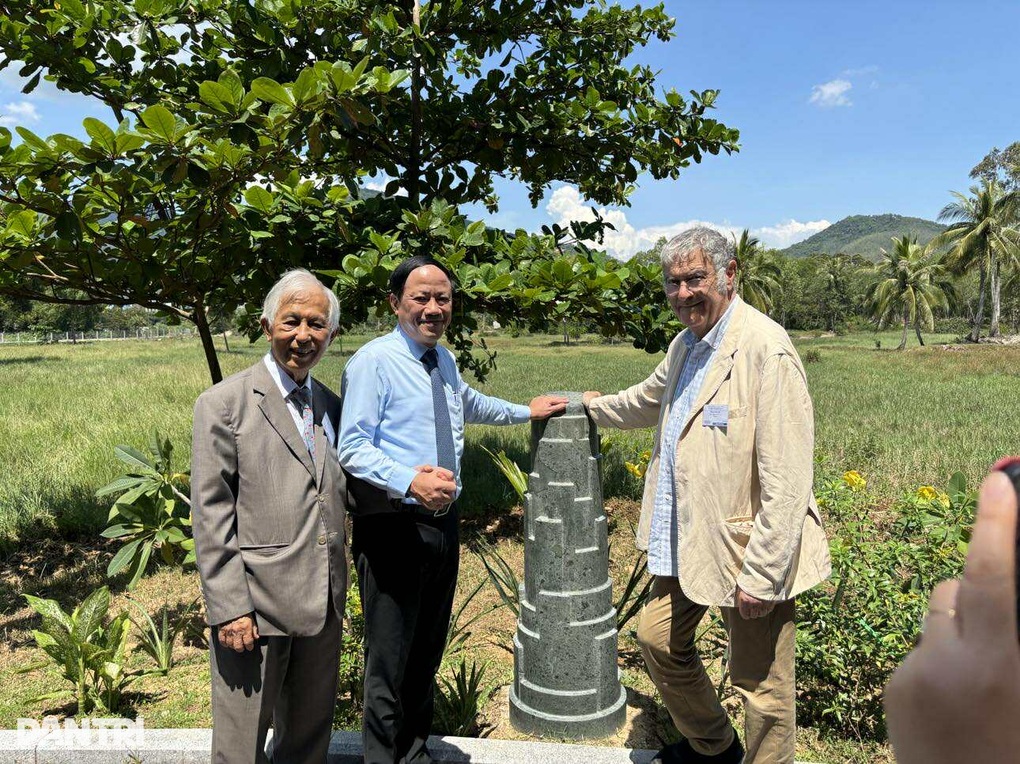
Professor Tran Thanh Van, Professor Serge Haroche and Chairman of Gia Lai Provincial People's Committee Pham Anh Tuan inaugurated the memorial stone pillar of Professor Serge Haroche on the Nobel promenade at ICISE Center (Photo: Hoang Hong).
Born 100 years ago, quantum physics has changed human life through a series of inventions such as computers, lasers, global positioning systems (GPS), mobile phones, magnetic resonance imaging (MRI)...
Quantum physics has opened up many revolutions in human perception and technological applications. Experiments studying the interaction between light and atoms, especially since the invention of the laser more than 60 years ago, have made this field the center of many Nobel Prizes, paving the way for the quantum technology era that humanity is entering today.
Professor Serge Haroche emphasized that the above knowledge was obtained thanks to basic research, driven by the curiosity of scientists who wanted to understand nature without setting any specific practical goals.
In his 15-minute speech, the 2012 Nobel Prize in Physics winner repeatedly mentioned academic freedom in basic scientific research.
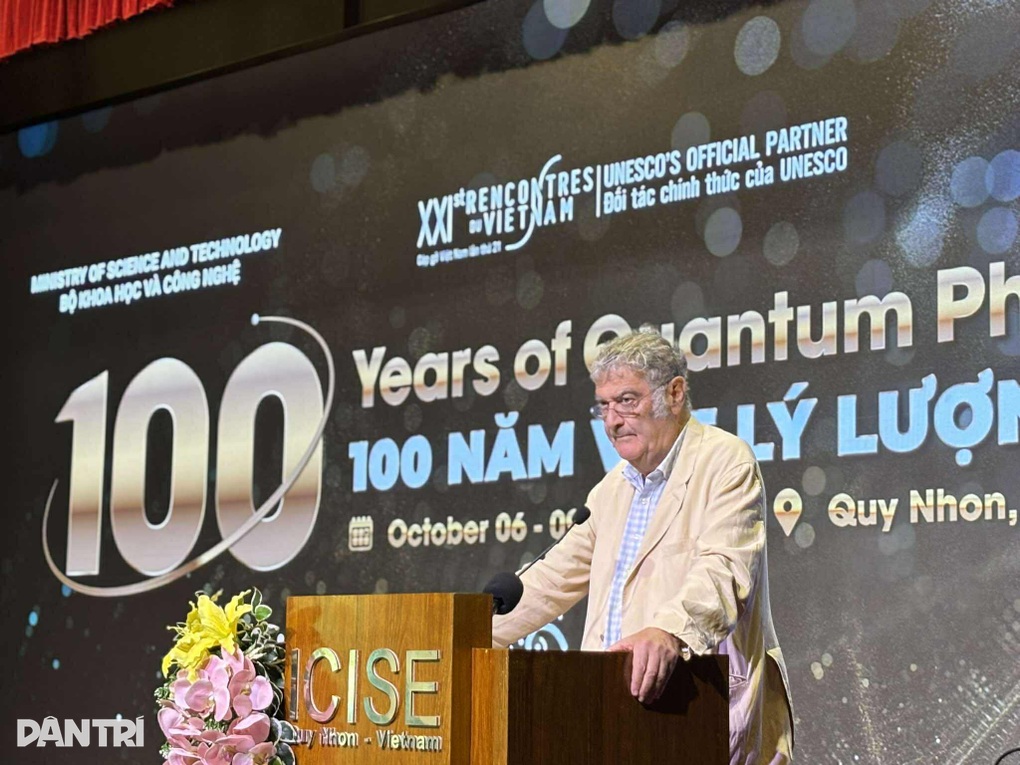
Professor Serge Haroche at the opening event of the "100 Quantum Physics" Conference (Photo: Hoang Hong).
The eminent scientist affirmed: “Basic science and technological progress can only develop when they go hand in hand and combine harmoniously. Basic science is guided by curiosity, must be free, without undue pressure so that researchers can follow their imagination and creativity.
Only when we have made fundamental discoveries, then we think about applications. Therefore, a free and trustworthy academic environment is essential for scientific research to really yield results.”
Sharing with Dan Tri reporter, Chairman of Gia Lai Provincial People's Committee Pham Anh Tuan said that the province is studying and proposing to the Central Government to invest in 4 basic science fields deployed at ICISE Center including: quantum physics, neutron physics (a field of nuclear physics), astronomy and biomedicine.
This investment is calculated for the long term, without putting pressure on application results but with a clear plan and steps.
Gia Lai’s big goal is to build the province into a prestigious international science and technology center, attracting leading scientists from the world and Vietnam to work and research here. “We identify the ICISE center as a part of Vietnam’s “Silicon Valley,” Mr. Pham Anh Tuan shared.
A good primary education is a prerequisite for the development of science and technology.
When referring to the Vietnamese Government's desire to develop quantum technology as part of its overall efforts to develop science and technology, Professor Serge Haroche pointed out two core factors.
One is to build a good primary and secondary education system, which is considered a prerequisite to attract young minds to science. The other is to build and maintain an effective academic research system with strong and sustainable financial support from the Government as well as the private sector.
“We believe that a significant portion of state funding should go to basic science, because we never know in advance which knowledge will lead to useful applications.
And we are sure that young researchers trained in basic science will naturally tend – at some stage in their careers – to turn their knowledge into benefits for society,” said Professor Nobel.
Sharing the same view, Professor Nguyen Quang Liem - President of the Vietnam Physics Association - called for strong changes in general education, especially STEM education.

Professor Nguyen Quang Liem - President of the Vietnam Physics Association (Photo: Hoang Hong).
According to Professor Liem, to develop physics in particular and basic science in general, it is necessary to start from high school, in which STEM education should be introduced from primary school, promoted in specialized schools with systematic investment in functional rooms.
“Every year, the Vietnam Physics Association makes great efforts to bring physics to high schools, calling on excellent students to study physics. Without physics, there is no foundation of science and technology, and without science and technology, national strength cannot be created.
We must also help our children understand that studying foreign trade and economics does not make them rich, but studying science can also make them rich. The richest countries in the world are thanks to science. The richest billionaires in the world also got rich through science,” Professor Nguyen Quang Liem affirmed.
" Basic research requires long-term funding, and at the same time, it is necessary to nurture the love of the young generation for research. This is the reason why Gia Lai brings STEM education into primary schools, so that young people can gradually approach scientific research from their first years of school.
In the 2025-2026 school year, Gia Lai has conducted STEM education throughout the old Binh Dinh area, determined to implement it in 100% of schools across the province next school year.
High school students and students of Quy Nhon University have study and research programs, and participate in scientific conferences at the ICISE Center. They have the opportunity to meet and interact with the world's most outstanding scientists - something that not all students in other provinces and cities have the opportunity to do.
Up to this moment, the province has welcomed the 19th Nobel scientist and hundreds of outstanding scientists. We are persistently pursuing the goal of building a science and technology center in Gia Lai, turning this place into a gathering place for scientists and spreading the scientific research movement throughout the country ."
Chairman of Gia Lai Provincial People's Committee Pham Anh Tuan
The "100 Years of Quantum Physics" conference will last until October 9 with many panel discussions.
There are expected to be more than 40 scientific reports with topics: Quantum optics, quantum communication and quantum computation; Interference directions between condensed matter physics, atomic physics and chemical physics; High precision experiments in spectroscopy and measurement; Cold atoms and material simulation; Theory and methods in quantum mechanics; Quantum high energy physics and cosmology; Quantum technology and applications in energy production.
These roundtable discussions will create a space for open academic exchange, while promoting the development of collaborative projects between Vietnamese and international laboratories.
Source: https://dantri.com.vn/giao-duc/se-xay-dung-o-gia-lai-mot-thung-lung-silicon-cua-viet-nam-20251007141305133.htm




![[Photo] Prime Minister Pham Minh Chinh chairs the 16th meeting of the National Steering Committee on combating illegal fishing.](https://vphoto.vietnam.vn/thumb/1200x675/vietnam/resource/IMAGE/2025/10/07/1759848378556_dsc-9253-jpg.webp)





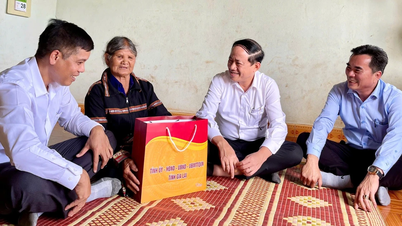

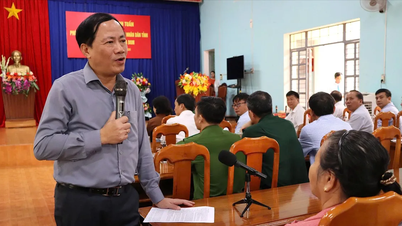

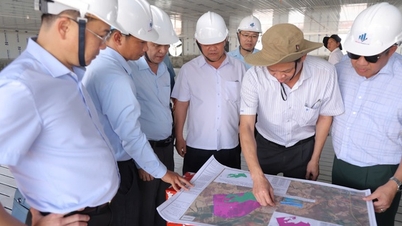










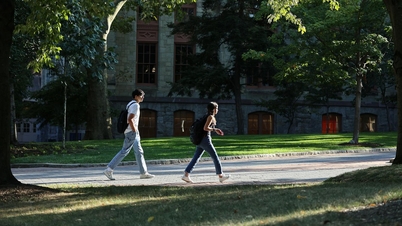
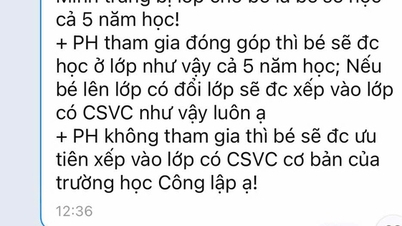





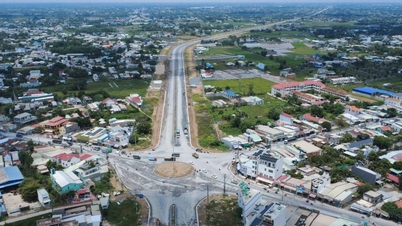




![[Photo] Super harvest moon shines brightly on Mid-Autumn Festival night around the world](https://vphoto.vietnam.vn/thumb/1200x675/vietnam/resource/IMAGE/2025/10/07/1759816565798_1759814567021-jpg.webp)























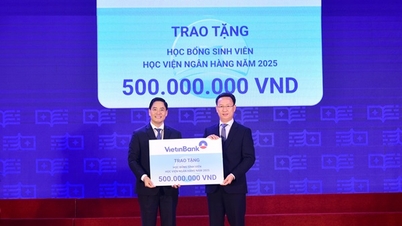








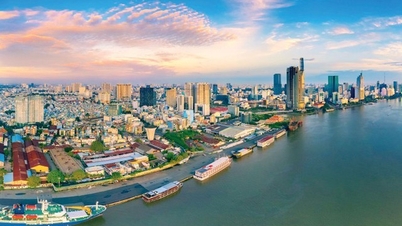



















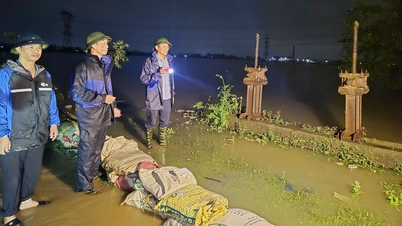












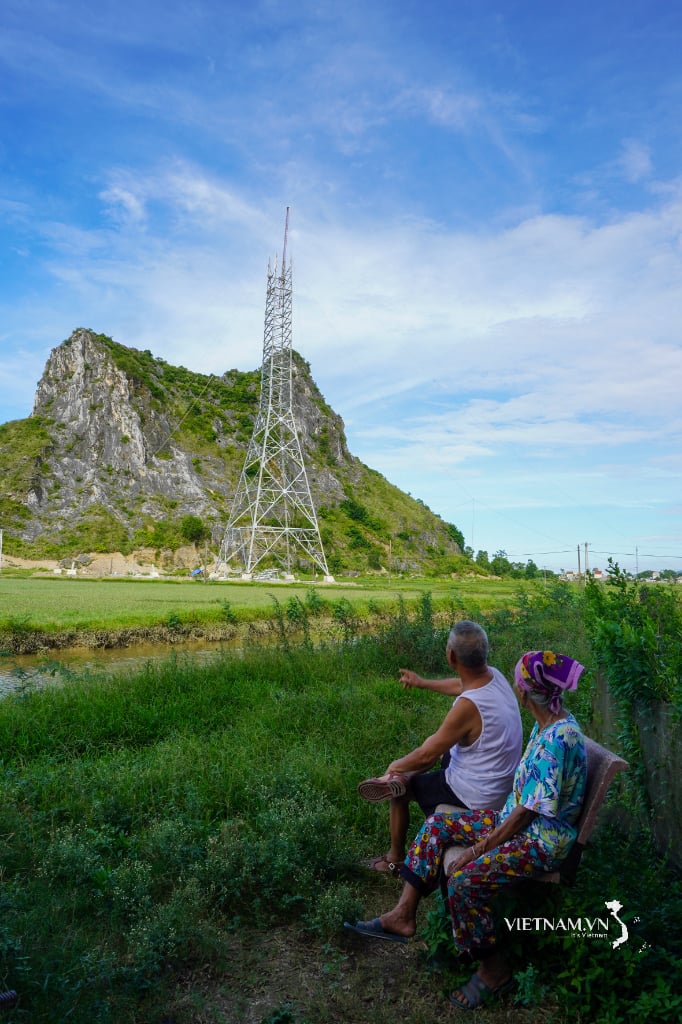

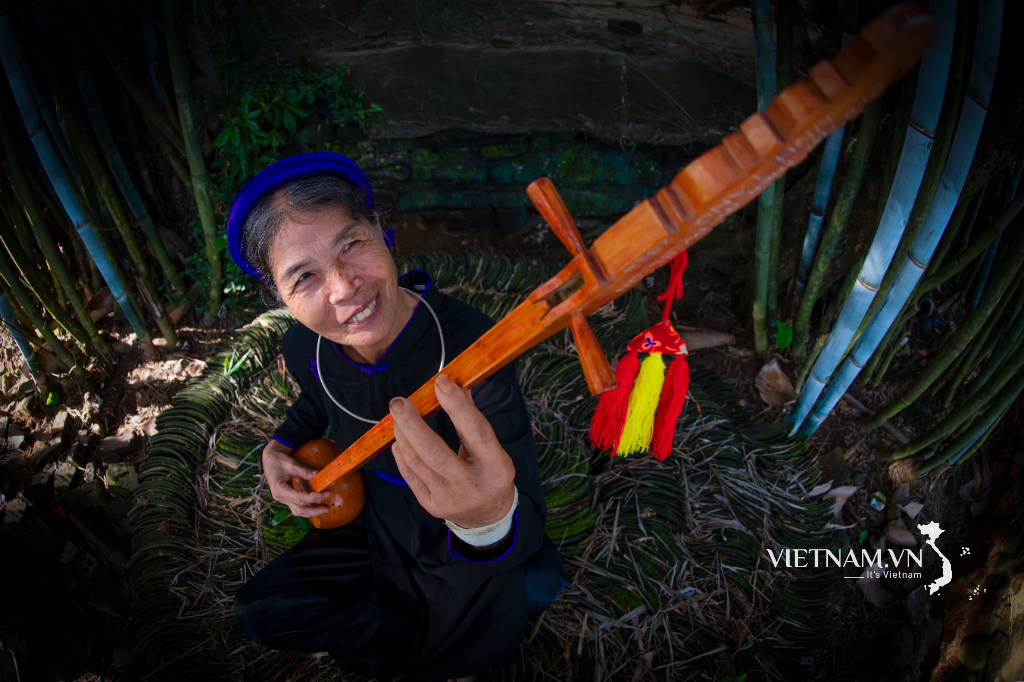
Comment (0)